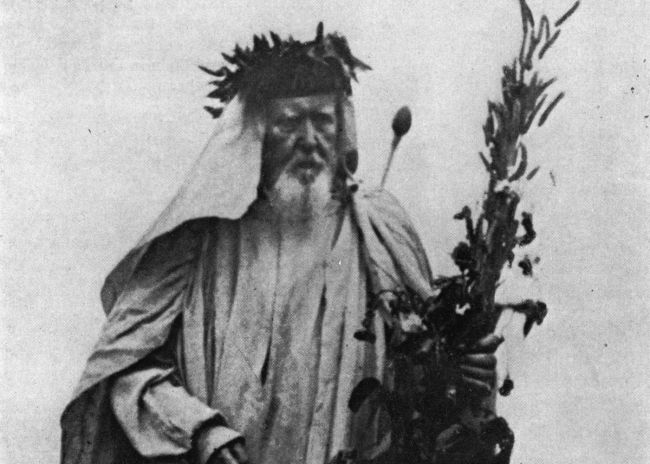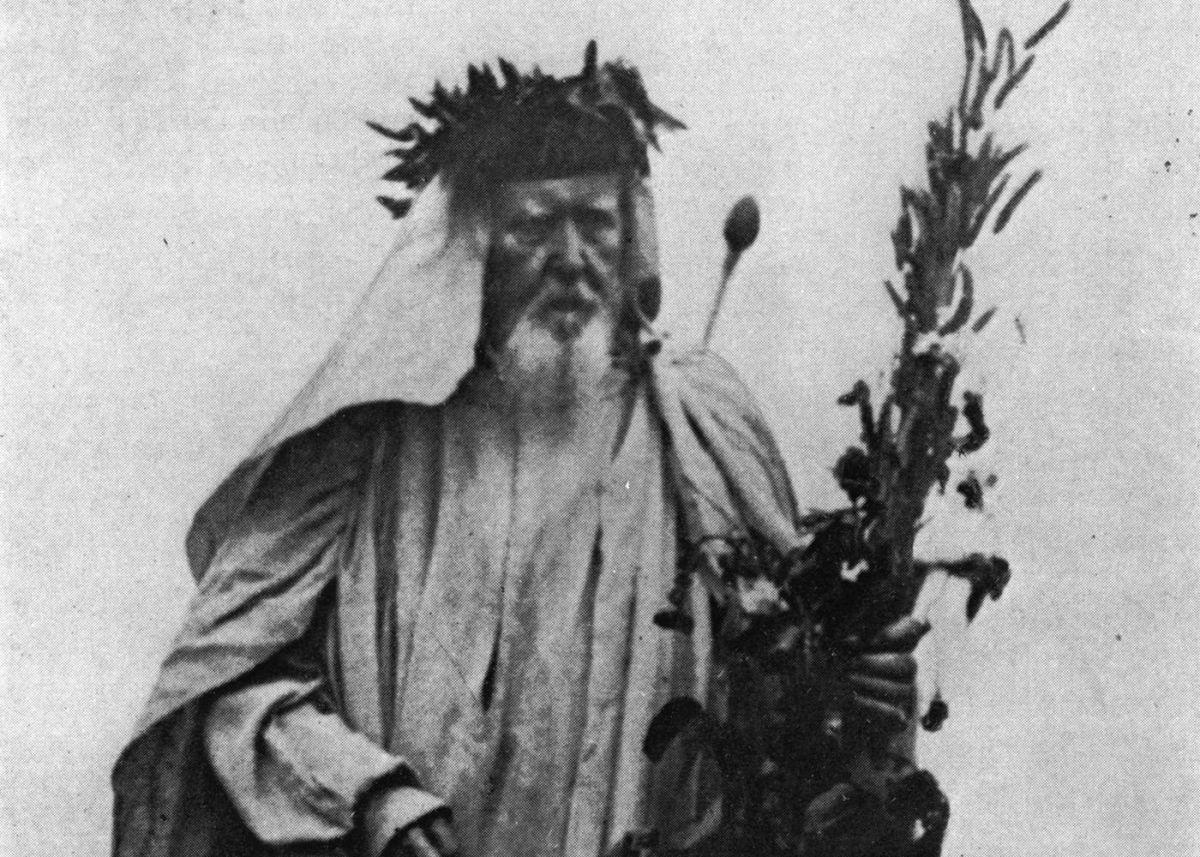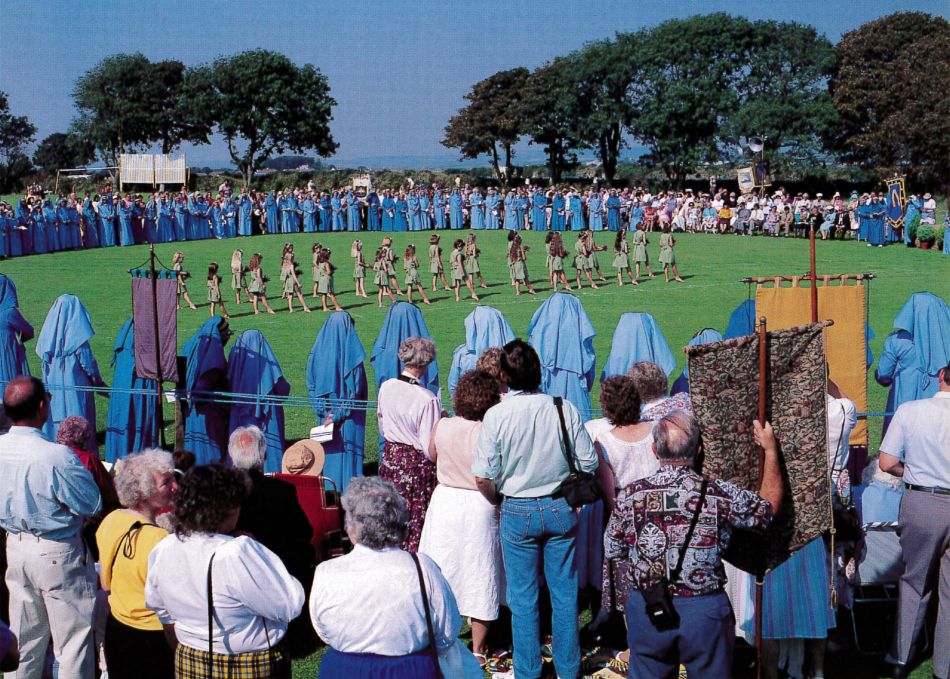Early life
Henry Jenner was born in St Columb Major in 1848. As a boy, he was excited to learn that there was a Cornish language. He would remain interested in the language for the whole of his life.
There has never been a time when there has been no person in Cornwall without a knowledge of the Cornish language Henry Jenner (1904)
The Charter Fragment
In 1870, Henry took a job working in the British Museum in London. While he was there, he discovered an early Cornish language poem written around 1400AD. It became known as ‘The Charter Fragment’.
A Handbook for the Cornish Language
In 1904, Henry wrote a book called A Handbook of the Cornish Language. This was the first book ever written to help people learn the Cornish language.
This book is principally intended for those persons of Cornish nationality, who wish to acquire some knowledge of their ancient tongue, and to read, write, and perhaps even to speak it Henry Jenner, A Handbook for the Cornish Language (1904)
Celtic Congress
Also in 1904, Henry campaigned for Cornwall to join the Celtic Congress, an international group that promoted the Celtic languages. Henry said that Cornwall should be allowed to join because it had its own Celtic language and culture. The Celtic Congress agreed and confirmed Cornwall’s membership by sending a telegram to Henry in Cornish.
Cornish Gorsedh
In 1909, Henry and his wife Kitty returned to Cornwall. Working with his friend Robert Morton Nance, Henry became President of the first Old Cornwall Society in St Ives, in 1920. Old Cornwall Societies celebrate the traditions and customs that make Cornwall unique and important.
Henry and Robert also formed the Cornish Gorsedh, which exists to maintain and display the spirit of Cornwall as a Celtic country. Henry and Robert held the first Gorsedh ceremony at Boscawen-Un, near St Buryan, on 21st September 1928. Henry was the first Grand Bard (leader) of the Cornish Gorsedh.
Later life
Henry continued to take an active role in promoting Cornish language and culture in his later life. He attended midsummer fire ceremonies and the first church service to be held in the Cornish language for 250 years at Towednack. He died in 1934, aged 85.








